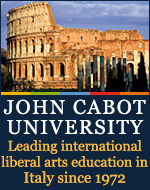
| IIE Home | Membership | Publications | Open Doors | Contact Us |
| Connect with Us |
Archives |
Article: Arab Spring Spawns Interest in Improving Quality of Higher Education An article in the New York Times reports on how the recent upheavals in the Middle East and northern Africa changed the role of higher education in the region, creating a greater need for engaging with institutions outside the region, standardizing curriculums, and finding alternative sources of financing. In an interview with the reporter at the World Innovation Summit for Education in Qatar, Rajika Bhandari, deputy vice president of research and evaluation at the Institute of International Education, said: "It is likely that the Arab Spring will certainly affect the governance system of higher education, probably in the direction of more independence, participation, and partnerships." The article specifically addresses a research report that IIE produced, with support from Carnegie Corporation of New York and in partnership with the Lebanese Association of Educational Studies (LAES), entitled: "Classifying Higher Education Institutions in the Middle East and North Africa: A Pilot Study." The first of its kind, the two-year study aims to develop a classification model for higher education institutions in the region and features research on 300 higher education institutions in Lebanon, Jordan, Tunisia, Saudi Arabia, Morocco, Qatar, and the United Arab Emirates. "There is no standardized framework for understanding the region’s institutions," Bhandari notes. "Having more comparable information like this will lead to a deeper understanding of the wide range of institutions in the Arab world and how they must be financed and supported." A draft version of the report will be available at www.iie.org/research on November 15, to be followed by a printed version of the final report. To read the full article, please visit: www.nytimes.com/2011/11/07/world/middleeast/arab-spring-spawns-interest-in-improving-quality-of-higher-education.html |
| www.iie.org/iienetwork • Member website of the Institute of International Education © 2025 Institute of International Education. All rights reserved. |


